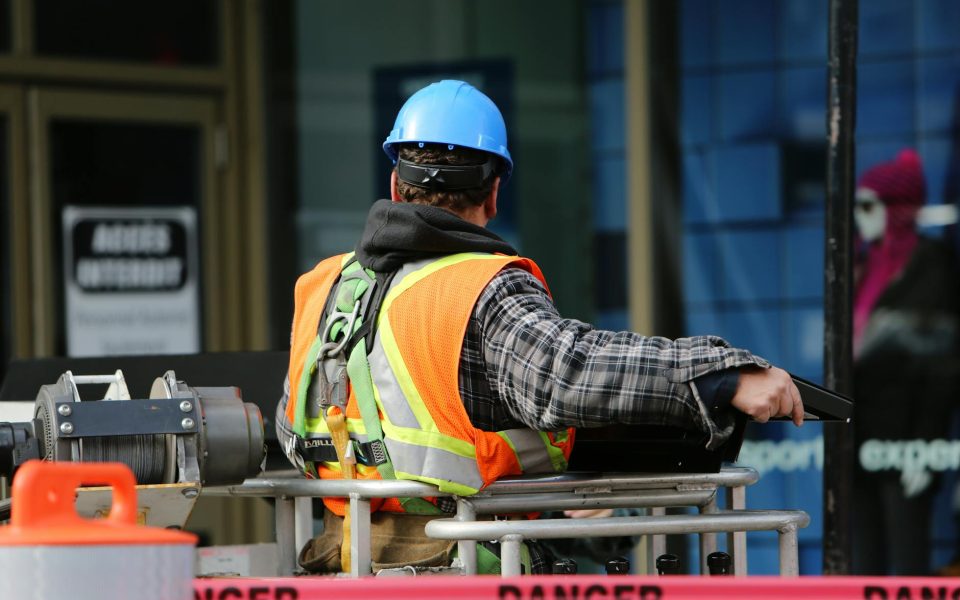This story was first published by Gwen Frisbie-Fulton / Beacon Media
This election shows that those who lead us should be the same people who make our society go.
I grew up tagging along behind my dad at construction sites. He would find a hard hat for me to wear, and it would wobble around on my too-small head.
Usually, we were there to look at some problem — the wrong lumber had been delivered and the team was trying to make do without sending it back, or something on the wiring specs hadn’t panned out. I’d play in the sawdust or make dolls out of the wire cuttings while my dad and other workers would huddle up and make a plan.
I learned by watching this process over and over that the people who do the work are the ones who, inevitably, know how to do the work. Even as my dad moved from carpenter to manager, he continued to rely on the expertise of the workers on the site, the ones swinging the hammers and laying pipe.
Most of us agree that we should turn to the people closest to an issue, those with the most skin in the game, to help create solutions to our problems.
For example, if we are worried about the severely understaffed school transportation system in North Carolina counties, it makes sense to go to the drivers who do this work day in and day out for solutions. If we want to address the overdose epidemic, we should turn to the EMTs, nurses, and community health clinic staff on the frontlines for their expertise.
This presidential election, the economy was top of mind for most voters, as we grapple with high inflation, low wages, and an out-of-balance housing market. Instead of electing people with similar personal concerns, most of those who make under $100,000 chose President-elect Donald Trump.
That means that most working-class people supported a campaign whose biggest and most vocal backers were billionaires. In August, Forbes reported that Trump’s 26 biggest billionaire backers had a combined net worth of $143 billion.
Preparing to return to the White House, Donald Trump is now selecting his cabinet and, if history is any indicator, it will also be stacked with the wealthy, not the people closest to the issues. His last cabinet was the wealthiest in history and was rocked by a series of resignations after reports on misuse of government aircraft, luxury furniture expenditures, and other scandals that just don’t compute for everyday Americans who are struggling to make ends meet.
While most of America is poor and working-class, we have selected leaders who are clearly not. How can they understand or address what we are facing? Instead of worrying about inflation and high gas prices like the rest of us, Trump mega-supporter and now administration nominee Elon Musk’s wealth has increased sevenfold over the last four years, from $25 billion to $188.5 billion
In the days after the election, Musk’s wealth surged $60 billion (a pretty good investment from the reported $130 million that he spent to elect Trump). It’s fair to say he’s barely noticed the cost of eggs.
While Trump and his associates are the most egregious example of billionaire-fueled politics, the problem is, of course, more widespread. The Harris campaign also flaunted billionaires, with Illinois Governor J.B. Pritzker smugly referring to himself as “an actual billionaire” on the convention stage, to draw a contrast with Trump, eliciting great applause. And before either Donald Trump or Kamala Harris ever ran for office, more than half of Congress was already made up of millionaires, with 30 of the wealthiest 50 lawmakers being Republican, the rest Democrats.
Will these oligarchs, millionaires, and billionaires make our working-class lives better? I guess I don’t know, but it sure seems unlikely.
Much fuss is being made about the roughly 53 percent of working class, or those who earn between $30,000 and $49,999 per year, that broke for Trump, according to a NBC exit poll. This marks a shift from the Democrats who, when I was coming up, were known as the party for working folks.
But it’s barely a mandate for Trump policies or his billionaire bunch. To me, what the numbers actually show is that working-class voters don’t have a party; they don’t have a place to hang their political hat.
This opens enormous possibilities and opportunities, one that no doubt the billionaires of both parties will try to seize.
But alternatively, it’s also an opportunity that working-class people –— people like me, my dad, the carpenters and electricians, school bus drivers, and EMTs — could seize, realizing our power as a voting bloc and reasserting ourselves as the experts that we are.
Maybe next time, we find a working-class candidate, one who represents our values and lived experience, and get them elected as president, as governor, as city councilperson. No matter our race, our gender, or where we live, it’s time for class solidarity.
Gwen Frisbie-Fulton is a North Carolina based mother, organizer, and writer focused on working-class issues and the South. This column is syndicated by Beacon Media. What do you think of nominating a candidate with working-class values? Contact [email protected] with comments and questions.
Join the First Amendment Society, a membership that goes directly to funding TCB‘s newsroom.
We believe that reporting can save the world.
The TCB First Amendment Society recognizes the vital role of a free, unfettered press with a bundling of local experiences designed to build community, and unique engagements with our newsroom that will help you understand, and shape, local journalism’s critical role in uplifting the people in our cities.
All revenue goes directly into the newsroom as reporters’ salaries and freelance commissions.


Leave a Reply